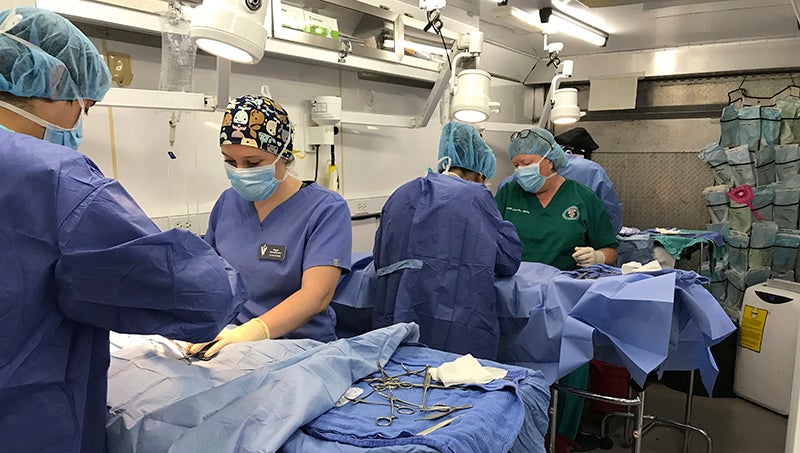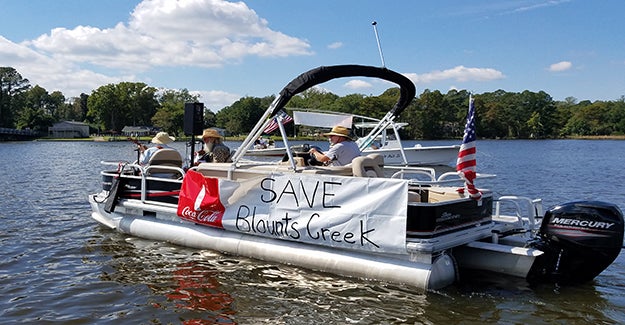Vet students get practical experience with feral cat spay/neuter clinic
Published 5:02 pm Tuesday, October 16, 2018

- AT WORK ON BREAK: From Sunday through Tuesday, North Carolina State University College of Veterinary Medicine students gave up their fall break to participate in a second spay/neuter clinic for feral cat colonies in the county. Vet school professor Kelli Ferris, DVM, (outfitted in green scrubs) assists the students with the procedures. (Marty Poffenberger)
A coalition of animal lovers came together again this week to help the local cat population.
The Humane Society of Beaufort County, Paws and Love cat rescue organization and North Carolina State University College of Veterinary Medicine Professor Kelli Ferris, DVM, and N.C. State veterinary students teamed up spay/neuter feral cat colonies whose populations are exploding.
“This is the second community cat spay/neuter clinic where the mobile veterinary hospital has brought students to operate in cats in our community,” said Marty Poffenberger, DVM and president of Humane Society of Beaufort County. “There are numerous cat colonies in the area where caretakers feed feral cats. This program has the goal of stopping the growth of these colonies.”
On Loblolly Lane in Washington, N.C. State’s mobile hospital opened its doors Sunday through Tuesday, performing approximately 85 operations, Poffenberger said. The event gives vet students the opportunity for hands-on experience with the procedures, prompting this group of students to give up their fall break in order to participate.

HELPING HANDS: Teens Grayson Warren and Kayla Tran volunteered with the effort in which approximately 85 feral cats were spayed or neutered. (Marty Poffenberger)
Dozens of cats were trapped in their habitats and transported to the temporary facility, then given a place to recover after the surgery.
“The event is a cooperative effort, with the Humane Society providing housing and feeding the visiting students. Paws and Love has been coordinating the trapping of the feral cats. Other volunteers have shown up to help with cleaning carriers, monitoring cats and completing paperwork,” Poffenberger said.
The event doesn’t just address population, it also provides some basic health care for animals that have likely had none. In addition to spaying/neutering, the cats are vaccinated, treated for fleas and have their ears tipped, so people know they’ve been altered.
To Poffenberger, the occasion represents partnership in an effort to keep cats and kittens healthy and out of the animal shelter, when those feeding them can no longer keep up with the many mouths to feed.
“It’s a real coalition of the Humane Society and the local rescue groups working with the vet school,” she said.





